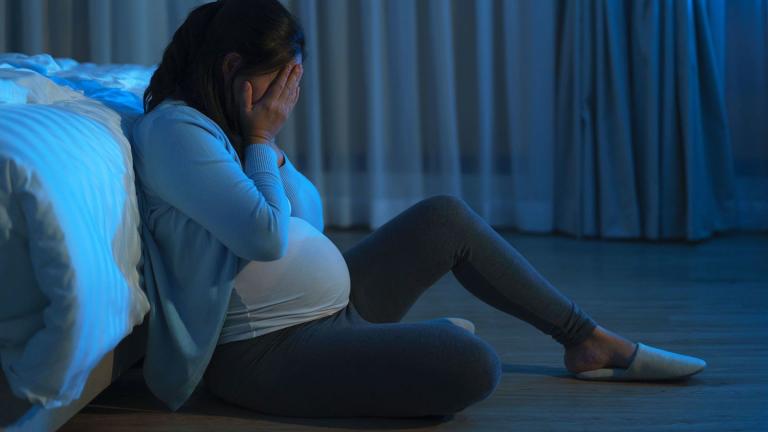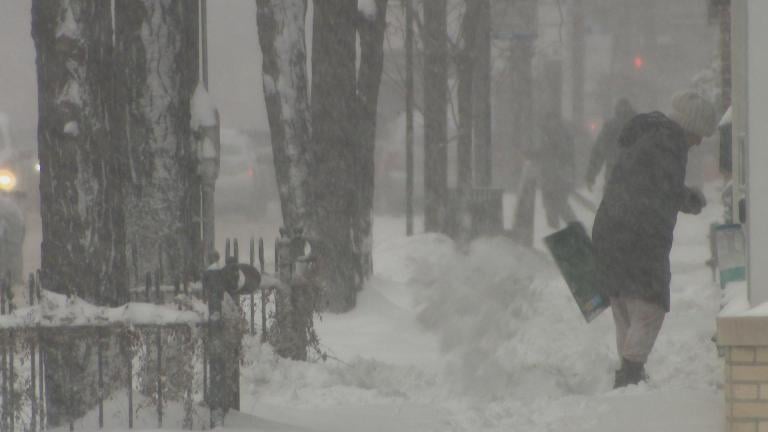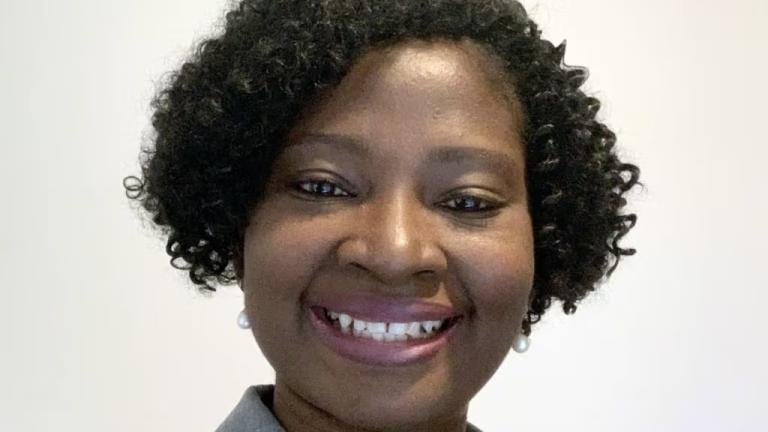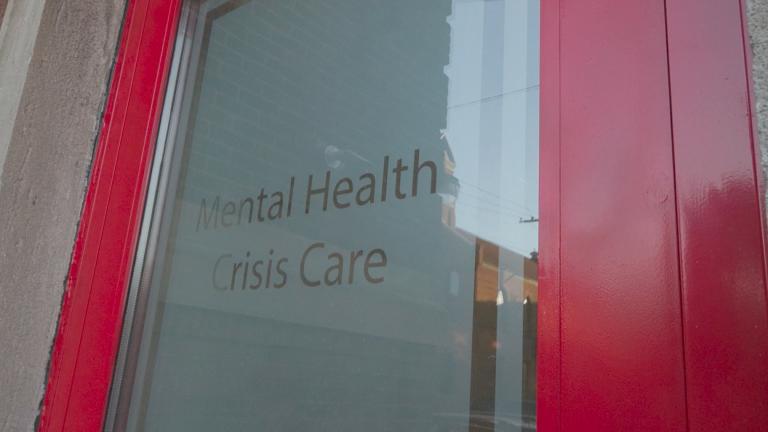This story is part of Policing: A “Chicago Tonight” Special on the anniversary of George Floyd’s murder.
Kimberly Marshall still remembers a call she responded to almost 30 years ago. A young boy was thrown out of a building window because he wouldn’t steal candy.
“I don’t think I’ve ever gotten over that,” Marshall said. “That has stayed with me, and that does cause those, those dark thoughts.”
Marshall was a Chicago police officer for 20 years, and the emotional drain of the job was a challenge, she said.
“The kids that you see here, they stay with you the most,” Marshall said. “Everyone says that you, you can’t describe the horror and the nightmares and the feeling of not being as useful as you can be knowing that it’s out of your hands.”
Marshall said policing is one of the most stressful jobs right now.
“The way this country feels about the police, I would be a wreck every time I went to knock on someone’s door because they don’t want you,” Marshall said. “They’re very upset. They’re very angry. African Americans and police have had a long, arduous relationship.”
Mental health professionals say officer wellness, which is already a concern given the nature of the work, has declined over the past year amid the pandemic, civil unrest and a growing distrust of the police.
Some clinicians who work with police officers say that while there is still a stigma about seeking treatment, their full case loads suggest a desire for mental health resources, and a need for more.
Carrie Steiner was a Chicago police officer for 13 years. After leaving the department, Steiner opened the First Responders Wellness Center.
“There are a lot of officers that are really questioning now, staying in this field, or, you know, trying to think about when can I quit? Or when’s the earliest I can retire,” Steiner said. “I’ve never seen that since I’ve been doing this as much as in the last year.”
Her organization serves first responders and their families across the state. She said some officers are hesitant to ask for help.
“I think culturally, too, when you’re an officer, you don’t want other people to think that you’re weak, or that you can’t handle the job, or that you won’t be able to show up or handle a scene,” Steiner said.
So far this year, at least 57 current and retired officers in the U.S. have died by suicide, according to Blue H.E.L.P., a nonprofit that tracks police suicides in the country. In 2020, 172 died by suicide. In 2019, that number reached 238.
Two Chicago police officers died by suicide in March. According to a 2017 Department of Justice report that led to the police consent decree, CPD’s suicide rate was 60% higher than the national average among law enforcement.
Robert Sobo cautions that officer suicides are hard to track, but says the rate is still too high. Sobo is the director of CPD’s counseling division, Employee Assistance Program.
“Suicide is still a big problem, and in the United States alone, suicide is up about 28%, nationally,” Sobo said. “But suicide awareness and suicide prevention is about the comprehensive programs to deal with stress, depression and trauma, before an officer gets to the point of being suicidal.”
EAP offers mental health services to current and former officers and their families. The program has 13 clinicians, six drug and alcohol counselors, and about 200 rank-and-file members offering peer support.
Sobo says CPD’s program is the most robust in the nation.
“Given the fact that the 13 of us — and all of us at EAP, in general — have an enormous case load, if we had more, we would just be serving more people because the demand for services is there,” Sobo said.
After the latest suicides in the department, CPD brought on Alexa James as senior advisor of wellness. James is the CEO of the National Alliance on Mental Illness Chicago.
“Our response is this: if we just focus on the suicides, we are missing tens of thousands of people who work here daily and are in pain, and they are tired, and they don’t feel seen and heard,” James said.
She is working with Sobo to build a culture of wellness in the department, moving from mending trauma to preventing it.
“What are we doing to eliminate triggers, challenges, and really examine policies that indirectly or directly harm officers,” James said.
This includes training, trauma briefings and considering how working conditions impact officer well-being — like the canceled days off and mandatory overtime officers faced last summer.
After retiring from the police force, Marshall went to school to be a mental health professional. While on the force, she said she saw both mental health needs of officers and a need in the communities she was serving.
Marshall encourages officers and others dealing with mental illnesses to seek help.
“Everything is treatable,” Marshall said. “That’s my favorite line. Everything is treatable.”
Chicago police officers and their families can reach the EAP by calling 312-743-0378. For everyone else, the National Suicide Prevention Lifeline is 1-800-273-8255.
Note: This story will be updated with video.








